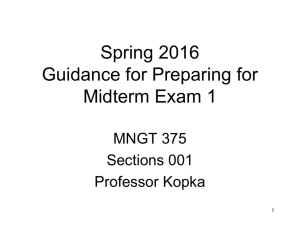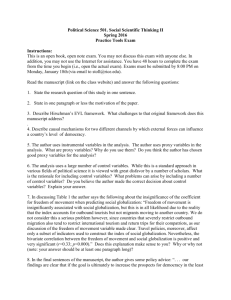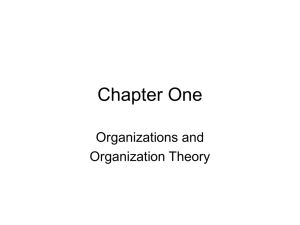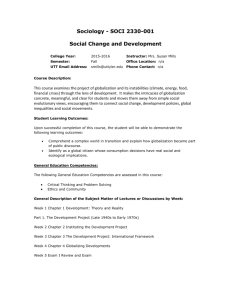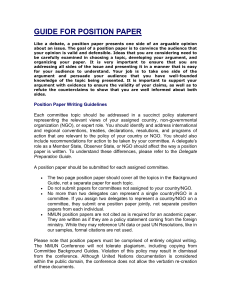Chapter 19: Global Issues and Globalization
advertisement
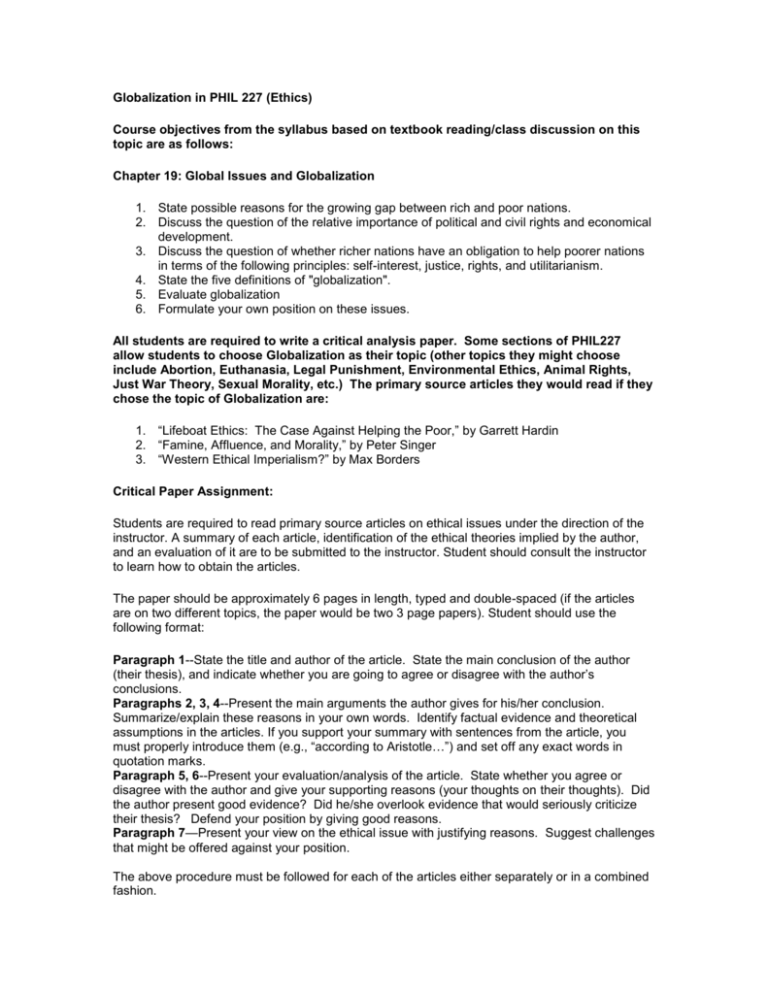
Globalization in PHIL 227 (Ethics) Course objectives from the syllabus based on textbook reading/class discussion on this topic are as follows: Chapter 19: Global Issues and Globalization 1. State possible reasons for the growing gap between rich and poor nations. 2. Discuss the question of the relative importance of political and civil rights and economical development. 3. Discuss the question of whether richer nations have an obligation to help poorer nations in terms of the following principles: self-interest, justice, rights, and utilitarianism. 4. State the five definitions of "globalization". 5. Evaluate globalization 6. Formulate your own position on these issues. All students are required to write a critical analysis paper. Some sections of PHIL227 allow students to choose Globalization as their topic (other topics they might choose include Abortion, Euthanasia, Legal Punishment, Environmental Ethics, Animal Rights, Just War Theory, Sexual Morality, etc.) The primary source articles they would read if they chose the topic of Globalization are: 1. “Lifeboat Ethics: The Case Against Helping the Poor,” by Garrett Hardin 2. “Famine, Affluence, and Morality,” by Peter Singer 3. “Western Ethical Imperialism?” by Max Borders Critical Paper Assignment: Students are required to read primary source articles on ethical issues under the direction of the instructor. A summary of each article, identification of the ethical theories implied by the author, and an evaluation of it are to be submitted to the instructor. Student should consult the instructor to learn how to obtain the articles. The paper should be approximately 6 pages in length, typed and double-spaced (if the articles are on two different topics, the paper would be two 3 page papers). Student should use the following format: Paragraph 1--State the title and author of the article. State the main conclusion of the author (their thesis), and indicate whether you are going to agree or disagree with the author’s conclusions. Paragraphs 2, 3, 4--Present the main arguments the author gives for his/her conclusion. Summarize/explain these reasons in your own words. Identify factual evidence and theoretical assumptions in the articles. If you support your summary with sentences from the article, you must properly introduce them (e.g., “according to Aristotle…”) and set off any exact words in quotation marks. Paragraph 5, 6--Present your evaluation/analysis of the article. State whether you agree or disagree with the author and give your supporting reasons (your thoughts on their thoughts). Did the author present good evidence? Did he/she overlook evidence that would seriously criticize their thesis? Defend your position by giving good reasons. Paragraph 7—Present your view on the ethical issue with justifying reasons. Suggest challenges that might be offered against your position. The above procedure must be followed for each of the articles either separately or in a combined fashion.

